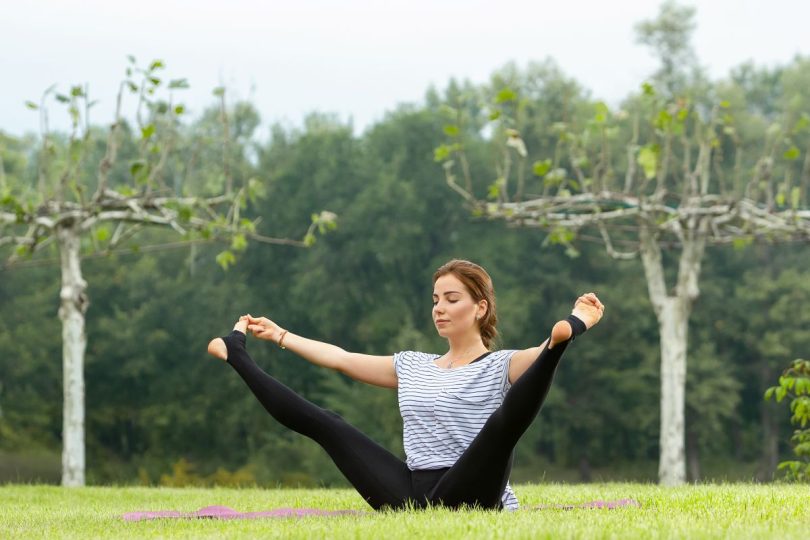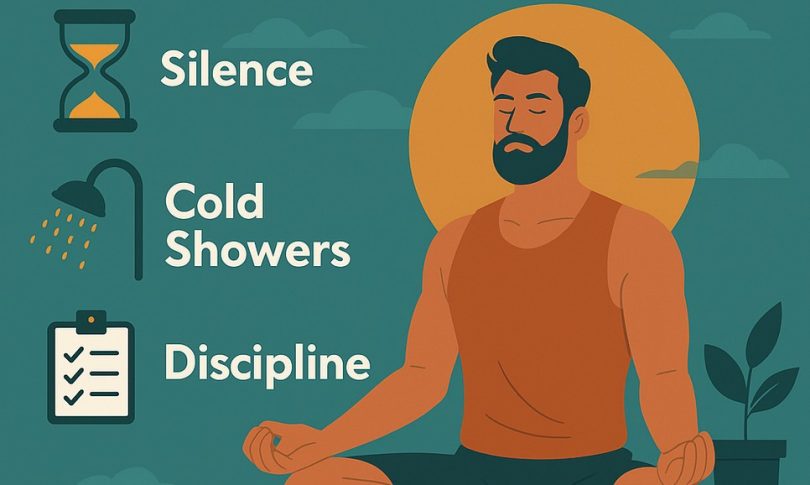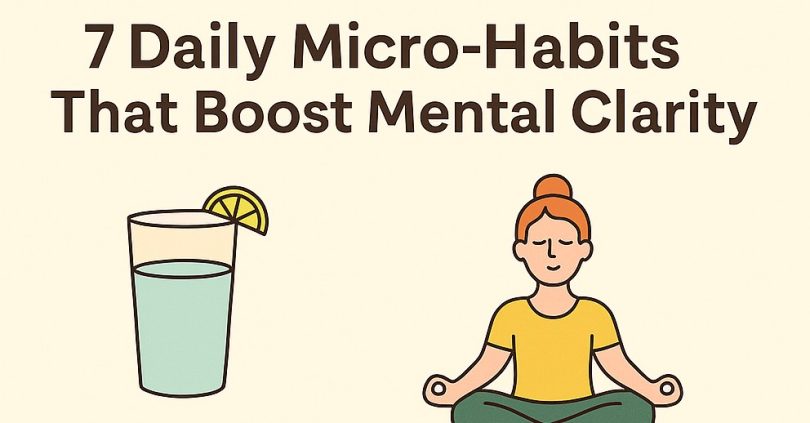In today’s hectic world, learning how to reduce stress naturally is not just a luxury—it’s a necessity. Every day, countless people battle with overwhelming pressure, and while stress is a natural response, chronic stress can wreak havoc on both our minds and bodies. Fortunately, natural methods offer effective solutions that are simple, practical, and free from harsh chemicals. In this article, we explore the fundamentals of stress, its impact on health, and practical, everyday strategies to help you find calm.
Key Wearables for Monitoring and Reducing Stress
Modern stress reducing wearables can help you track your well-being in real time. Devices such as smartwatches and fitness trackers provide insights into your heart rate, sleep quality, and overall stress levels. These gadgets not only monitor your physical health but also remind you to engage in calming activities, making it easier to learn how to reduce stress naturally.
| Device | Features | Benefits |
|---|---|---|
| Apple Watch | Heart rate, ECG, mindfulness app | Helps track stress spikes and suggests breathing exercises. |
| Fitbit Charge | Sleep tracking, stress score, guided breathing | Provides insights to improve sleep and reduce anxiety. |
| Garmin Vivosmart | Stress tracking, heart rate variability, body battery | Monitors energy levels and suggests relaxation techniques. |
Understanding Stress
Stress is our body’s natural response to challenges and threats. When you face a stressful situation, your body releases hormones like cortisol and adrenaline, triggering the well-known fight or flight response. While this mechanism is essential for survival, constant exposure to stress can lead to serious health problems. To learn how to reduce stress naturally, it’s crucial to first understand what stress is and how it affects your overall well-being.
What Is Stress?
Simply put, stress is a feeling of being overwhelmed or unable to cope with demands. It can stem from work pressures, personal challenges, or environmental factors. Transitioning from a state of constant stress to one of calmness can be achieved by adopting natural methods that help restore balance.
How Chronic Stress Impacts Your Health
When stress becomes chronic, it can affect both your mind and body. Persistent high levels of cortisol can lead to physical problems like high blood pressure, muscle tension, and sleep disturbances, as well as mental health issues like anxiety and depression.
| Impact | Description |
|---|---|
| High Blood Pressure | Chronic stress can elevate blood pressure, increasing heart disease risk. |
| Sleep Disorders | Stress can lead to insomnia or poor sleep quality. |
| Mental Health Issues | Long-term stress is linked to anxiety, depression, and decreased focus. |
Effects of Chronic Stress
Living with chronic stress not only disturbs your mental peace but also leaves a lasting impact on your physical health. Recognizing these effects is the first step toward learning effective methods to reduce stress naturally. From increased irritability to severe health complications, understanding these effects helps motivate positive change.
Mental and Emotional Effects
Continuous stress can lead to feelings of anxiety, mood swings, and a lack of concentration. Over time, these effects may contribute to more serious conditions such as depression. Transitioning to natural stress-relief practices can help restore a balanced mental state.
Physical Consequences of Chronic Stress
Your body bears the brunt of stress through symptoms like muscle tension, headaches, and digestive issues. These physical signs indicate that your body is under strain and desperately needs methods to reduce stress naturally. Simple practices such as deep breathing and physical activity can help ease these symptoms.

Natural Techniques for Reducing Stress
There are numerous natural methods that can help you manage stress effectively. By incorporating these practices into your daily routine, you can create a lasting sense of calm and well-being. The following techniques are simple, accessible, and highly effective ways to learn how to reduce stress naturally.
Mindfulness and Meditation
Mindfulness and meditation are powerful tools for centering your mind and calming your emotions. These practices encourage you to focus on the present moment, reducing the constant barrage of stressful thoughts. A few minutes of meditation each day can lower cortisol levels and enhance your overall mood.
Breathing Exercises and Progressive Muscle Relaxation
Simple breathing techniques, such as the 4‑4‑4 method (inhale, hold, exhale each for 4 seconds), can quickly shift your body from a state of tension to one of relaxation. Progressive muscle relaxation (PMR) is another effective method, where you consciously tense and then relax different muscle groups, allowing physical stress to melt away.
Nutrition and a Balanced Diet
What you eat can have a profound impact on your stress levels. A diet rich in whole foods, such as leafy greens, nuts, and fatty fish, supplies your body with essential nutrients that help regulate stress hormones. Conversely, reducing your intake of caffeine and sugar can prevent unnecessary stress spikes.
| Food Group | Benefit | Key Nutrients |
|---|---|---|
| Leafy Greens | Reduces anxiety and stabilizes mood | Folate, magnesium, vitamin C |
| Fatty Fish | Boosts brain function and reduces inflammation | Omega-3 fatty acids |
| Nuts & Seeds | Supports muscle relaxation and mental clarity | Magnesium, healthy fats |
Lifestyle Changes to Reduce Stress
Incorporating healthy lifestyle habits is essential in learning how to reduce stress naturally. Small adjustments in your daily routine can lead to significant improvements in your stress levels. From establishing a consistent sleep schedule to engaging in regular physical activity, these changes empower you to manage stress more effectively.
Creating a Consistent Daily Routine
Establishing a routine helps bring structure to your day. Consistent sleep patterns, scheduled meals, and dedicated time for relaxation contribute to lower stress levels. Transitioning between tasks smoothly is easier when you have a routine that supports your well-being.
Engaging in Regular Physical Activity
Even a short daily walk can have a remarkable impact on reducing stress. Physical activity releases endorphins—natural mood enhancers—that help diminish anxiety and improve overall mental clarity. Whether it’s yoga, jogging, or a brisk walk in nature, exercise is a key component in learning how to reduce stress naturally.

Managing Your Time and Setting Boundaries
Learning to manage your time effectively can help you avoid feeling overwhelmed. Prioritize your tasks, set clear boundaries at work and home, and don’t be afraid to say no when necessary. These practices not only reduce your daily stress load but also pave the way for a calmer, more organized life.
In summary, this section has explored the basics of stress, the impact of chronic stress on both body and mind, and several natural techniques to help reduce stress. By integrating mindfulness, proper nutrition, regular exercise, and effective time management into your daily routine, you are taking important steps towards learning how to reduce stress naturally. Each small change you make can add up to significant improvements in your overall health and well-being.
Advanced Natural Stress Reduction Techniques
In this section, we delve into more advanced and daily practices that show you how to reduce stress naturally. These methods go beyond basic mindfulness and exercise and incorporate self-compassion, nature immersion, and aromatherapy to help you create lasting calm. Moreover, these techniques are easy to integrate into your routine and can work wonders when practiced consistently.
Self-Soothing Touch and Quick Breathing Techniques
One simple yet powerful method is self-soothing touch. Studies have shown that spending just 20 seconds a day placing your hand over your heart or stomach while focusing on deep, controlled breaths can help lower cortisol levels significantly. This micropractice is an ideal way to shift from a state of high alert to a more relaxed, stress-reducing state.
For instance, when you feel overwhelmed at work, take a brief pause. Inhale slowly through your nose, hold your breath for a few seconds, and then exhale slowly. Repeat this cycle two or three times. Transitioning your focus in this way can quickly ease your stress and remind you of how to reduce stress naturally through your own body’s signals.

Aromatherapy and Essential Oils
Another advanced technique involves aromatherapy. Using essential oils like lavender, bergamot, and frankincense can be a soothing addition to your natural stress relief routine. You can use a diffuser at home or apply a few drops (diluted with a carrier oil) on your pulse points. The calming scents not only improve mood but also help lower stress hormones.
These natural aromas work by triggering the limbic system in your brain—the area responsible for emotions and memories—thus, reminding you of calm and safety. When combined with deep breathing exercises, essential oils create a multi-sensory experience that reinforces the idea of reducing stress naturally.
| Essential Oil | Main Benefits | Usage Tips |
|---|---|---|
| Lavender | Calms anxiety, improves sleep | Use in a diffuser or dilute for topical application. |
| Bergamot | Boosts mood, reduces cortisol | Inhale directly or mix with carrier oil. |
| Frankincense | Enhances relaxation, supports meditation | Ideal for meditation sessions; add to warm bath water. |
Integrating Natural Stress Management into Your Daily Life
Consistency is key when learning how to reduce stress naturally. In addition to specialized techniques, simple lifestyle changes can make a big difference over time. These adjustments include setting a daily routine, managing your time wisely, and establishing clear boundaries between work and personal life.
Creating a Balanced Daily Routine
Start your day with a structured routine that includes a moment of mindfulness or a short walk outdoors. Over time, these small actions build a habit that reinforces calm. When your day is predictable, your body and mind feel more secure, making it easier to handle unexpected challenges.
Consider using a planner or a digital app to organize your day. Allocate time for work, exercise, meals, and relaxation. This not only helps you manage tasks but also minimizes the chances of feeling overwhelmed. Remember, every step you take is a step toward learning how to reduce stress naturally.
Time Management and Setting Boundaries
Another important aspect is effective time management. It’s easy to get bogged down with endless tasks, but by prioritizing and setting clear boundaries, you can preserve time for yourself. Try breaking your work into manageable chunks and schedule short breaks to refresh your mind.
Setting boundaries means saying no to extra tasks that drain your energy. This might involve turning down additional responsibilities at work or planning personal time where you disconnect from digital distractions. When you allocate time just for you, your mind has a chance to recover and reset.
Connecting with Nature
Nature is one of the most potent natural remedies for stress. Research shows that spending time outdoors not only reduces stress hormones but also boosts your mood by exposing you to natural light and fresh air. Whether it’s a walk in the park or simply sitting by a window with a view of green trees, these moments can significantly help in learning how to reduce stress naturally.
For example, try to incorporate a 10- to 15‑minute outdoor break into your daily schedule. Look around, notice the colors, feel the breeze, and listen to the sounds of nature. These sensory experiences provide a mental reset and help lower stress levels.

Expert Advice and Daily Tips
Experts in nutrition, psychology, and fitness all emphasize the importance of a holistic approach to stress management. They suggest that combining various natural methods can lead to better results than relying on a single technique. In this part, we share practical daily tips that can make it easier to integrate natural stress reduction practices into your busy life.
Daily Habits to Lower Stress
Experts recommend several small habits that are effective in reducing stress. Start by taking a few minutes each day to practice deep breathing or a short meditation session. It might also help to keep a journal where you jot down your feelings or things you are grateful for. Such practices can not only clear your mind but also help you notice patterns in your stress levels.
In addition, consider engaging in light physical activities like stretching or a brisk walk. These activities release endorphins, naturally boosting your mood and reducing anxiety. The key is consistency: even on your busiest days, carve out a few moments for these simple routines.
Using Technology to Support Stress Management
Modern technology can be a great ally when learning how to reduce stress naturally. Stress tracking wearables and smartphone apps can monitor your heart rate, remind you to breathe deeply, or even guide you through a brief meditation session. This immediate feedback helps you adjust your behavior and stay mindful throughout the day.
| App/Device | Feature | Benefit |
|---|---|---|
| Calm App | Meditation sessions, breathing exercises | Helps center your mind and reduce anxiety. |
| Headspace | Guided meditations, sleep casts | Improves focus and aids relaxation. |
| Fitbit | Stress tracking, guided breathing | Provides real-time insights into your stress levels. |
Integrating These Techniques into Your Routine
Transitioning to a lifestyle that promotes natural stress relief requires small but steady changes. Begin with one or two practices that resonate with you—perhaps start with a daily meditation or a short walk outdoors. Gradually add more elements as you feel comfortable.
Remember, every effort counts. Even if you only have a few minutes each day, incorporating these techniques will help you build resilience against stress. With time, these practices become second nature, and you’ll find yourself better equipped to handle challenges.

Frequently Asked Questions
1. What are some quick ways to reduce stress naturally?
Quick techniques include deep breathing exercises, a 20-second self-soothing touch, and a short walk outdoors. These methods work immediately to lower cortisol levels.
2. How does nature help in reducing stress naturally?
Nature provides sensory stimulation—fresh air, natural light, and calming sounds—which help lower stress hormones and improve mood.
3. Can essential oils really help reduce stress?
Yes, essential oils such as lavender, bergamot, and frankincense have calming properties. When used in aromatherapy, they help reduce anxiety and promote relaxation.
4. What role do wearables play in natural stress reduction?
Wearables track your physiological signals like heart rate and sleep quality, reminding you to engage in stress reduction practices and adjust your routine as needed.
5. How can I create a stress-free daily routine?
Start by setting consistent wake and sleep times, scheduling short breaks for mindfulness or exercise, and establishing clear boundaries between work and personal time.






